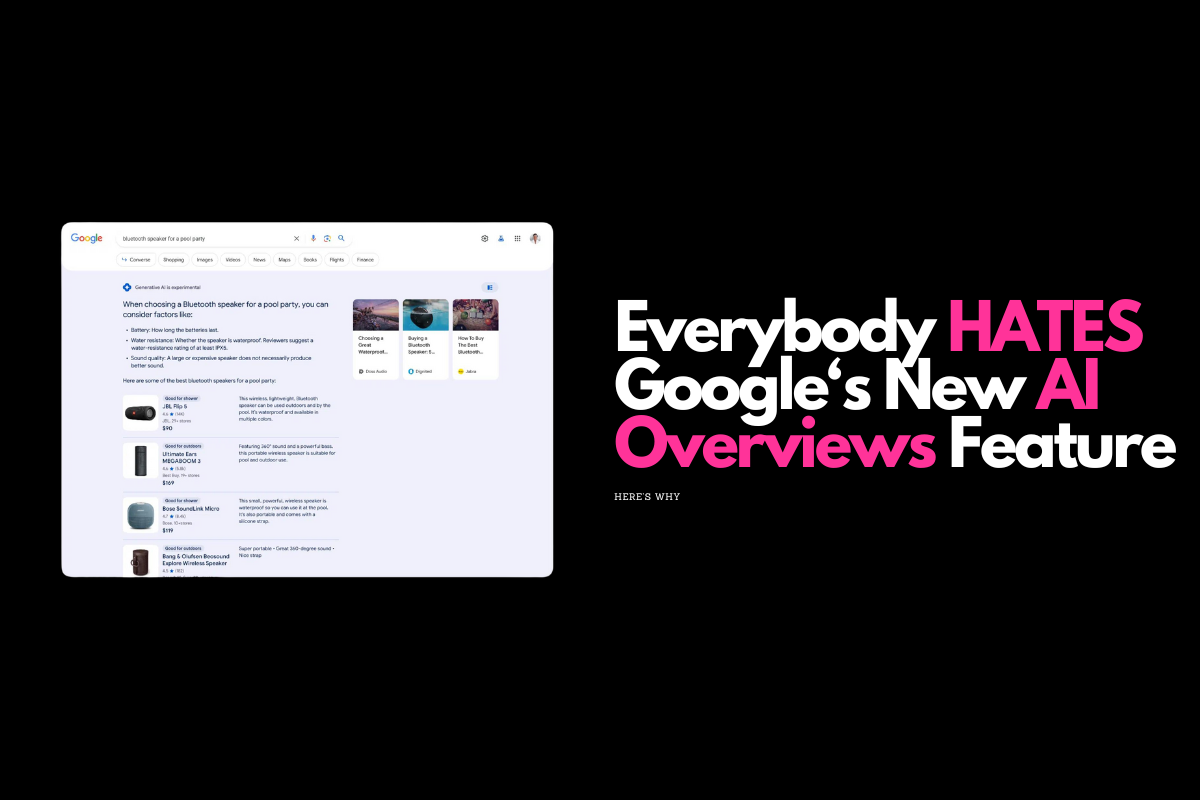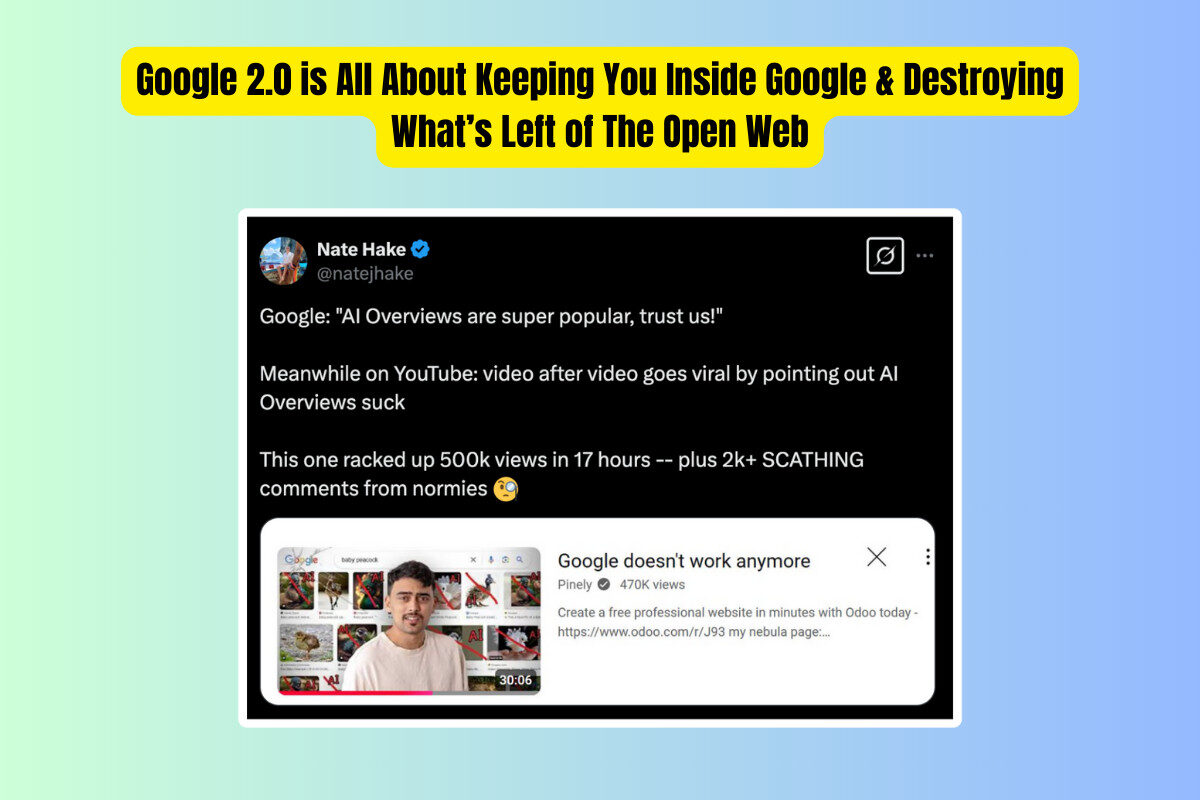TL;DR – DuckDuckGo says Google is undermining the Digital Markets Act (DMA) and needs to be put in its place
Google 2.0 is not a friend of publishers, content creators, or the open web. With its focus on AI and keeping everyone inside Google, alternative search companies are calling BS. And DuckDuckGo has fired shots, citing the EU’s DMA legislation.
- Google is facing serious accusations of undermining the DMA by delivering superficial compliance that still blocks rivals from competing effectively.
- The company’s click-and-query data sharing system is nearly useless to competitors due to overbroad anonymization and outdated information.
- Android users still face a frustrating maze of settings to change their default search engine — despite DMA rules demanding “easy switching.”
- The European Commission is under pressure to launch formal investigations to force meaningful changes and ensure the DMA’s intent isn’t lost.
- Calls are growing for stronger remedies, including mandatory API access to Google search results and recurring choice screens.
The Digital Markets Act (DMA) was supposed to fix Big Tech’s stranglehold on digital competition in Europe — but nearly a year in, Google is still calling the shots.
Fresh pressure is mounting on the European Commission to investigate Google for non-compliance with multiple key obligations under the DMA.
And this is a separate case to Google’s ongoing spat with the DOJ.
The call, led by DuckDuckGo and echoed by other privacy-first advocates, accuses Google of “malicious compliance” — technically following the rules, but gutting their intent.
If you’ve been wondering why your Android phone still defaults to Google, or why switching search engines feels like navigating a maze, you’re not alone — and according to these claims, it’s no accident.
How Google’s Tactics Are Quietly Killing the Open Web

There’s a bigger story here — and it’s not just about compliance. Google’s dominance isn’t just holding back competition in search engines; it’s reshaping the entire structure of the internet, and not for the better.
The way most people discover content today is through search. But increasingly, Google’s search results aren’t gateways to the open web — they’re endpoints.
Featured snippets, AI-generated overviews, knowledge panels, and answer boxes now sit at the top of most result pages, siphoning attention away from independent websites.
This creates a vicious cycle:
- Websites get less traffic.
- Publishers struggle to monetize.
- Content quality declines.
- Google uses this as justification to surface its own products and answers even more.
And all of this is powered by Google indexing the very content it now disincentivizes people from visiting.
📉 Google’s AI Overviews, for example, pull data from independent publishers — then present it directly in search, cutting out the original source completely.
What used to be a fair exchange — Google indexing content in return for sending traffic — has turned into a one-way deal where Google scrapes value from the open web while starving it of visibility.
Smaller publishers, niche communities, independent creators — they’re all collateral damage in a search system where Google’s goal is to keep users on Google.
And this isn’t a hypothetical problem. It’s already happening:
- Organic traffic from search is in freefall for many sites.
- Google’s own services dominate first-page results.
- Content creators are being pushed toward closed platforms like YouTube and Substack, just to stay visible.
The Bottom Line?
Even if the DMA forces Google to comply with the letter of the law, regulators need to look at the bigger picture: how Google’s business model is actively dismantling the open web — and replacing it with a walled garden controlled by one company.
Because if the open web dies, search competition won’t matter anymore. There won’t be anything left to search.
Now, let’s move on to why DuckDuckGo wants Google investigated for flouting the EU’s DMA rules…
Three Major Areas Where Google May Be Flouting DMA Rules

Here’s what’s at stake, and why it matters for competition — and for you as a user.
1. Click-And-Query Data Sharing (Article 6(11))
The DMA forces Google to level the playing field by sharing anonymized search data with rival search engines — data they need to improve results and compete fairly.
But Google’s “solution” — the Google European Search Dataset Licensing Program — appears to be all smoke and mirrors.
Thanks to overly aggressive anonymization requirements, around 99% of search queries are excluded, including the most valuable “long-tail” queries that smaller engines rely on to train and improve.
That’s not a typo — ninety-nine percent.
🔍 Pro Tip: Long-tail queries are ultra-specific searches like “best Android phone for seniors with big buttons.” They’re where smaller engines can shine — but not if Google keeps them locked away.
Making matters worse, the data Google does share is months old, lacks detail like bounce rate and dwell time, and provides no insight into critical search modules like knowledge panels.
So while it may technically check a box, it’s nowhere near what the DMA envisioned — or what fair competition requires.
2. Choice Screens and Easy Switching (Article 6(3) & 6(4))
One of the DMA’s headline promises was giving users the power to easily change default search engines or browsers — something Google has long buried under a labyrinth of settings.
But today, switching search engines on Android still takes 15+ steps. There’s no system-wide setting, and no way for apps like DuckDuckGo to guide you directly to change defaults.
Even Chrome hasn’t made it easier, and Google’s Android choice screens — meant to appear during setup — still haven’t rolled out to hundreds of millions of EU users.
Meanwhile, Apple, under the same law, has already implemented (and improved) browser choice screens across iOS. The contrast couldn’t be clearer.
3. Delays, Dark Patterns, and Tactical Loopholes
Regulators say Google’s compliance has been slow, selective, and designed to minimize impact.
Choice screens are delayed.
Search extensions still use dark patterns to steer users toward Google. And there’s zero transparency in how Google tests — or avoids — proposed remedies.
Even where progress is made, it’s often due to direct pressure from the European Commission — not because Google willingly cooperates.
The Bigger Picture: Why This Matters for Competition
The European Commission’s original goal with the DMA was simple: open up space for competition in markets dominated by gatekeepers like Google.
But without real enforcement, those goals risk being hollowed out by the same tactics regulators aimed to stop.
As DuckDuckGo points out, true search competition isn’t just about data — it’s about scale. Google’s massive head start means even perfect anonymized data wouldn’t close the gap.
That’s why there’s now a growing call for regulators to go further: forcing Google to license its search results via real-time APIs on fair terms.
📣 The takeaway? Giving smaller engines access to Google’s results could finally allow them to compete on equal footing — and give you better, more diverse options.
Want To Stay Ahead Of Stories Like This?
📬 Join Our I/O Newsletter — we break down the biggest stories in mobile tech, privacy, and digital policy with zero fluff and maximum value.
👉 Sign up here – it’s free, fast, and essential reading.
Explore More on KnowYourMobile:


